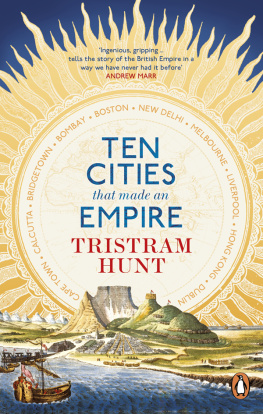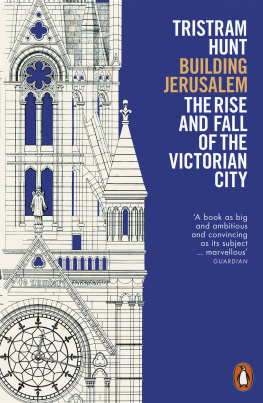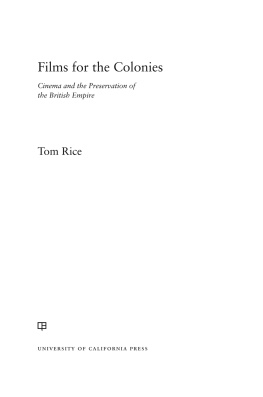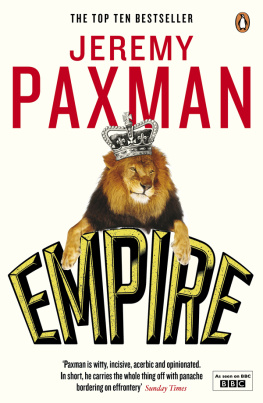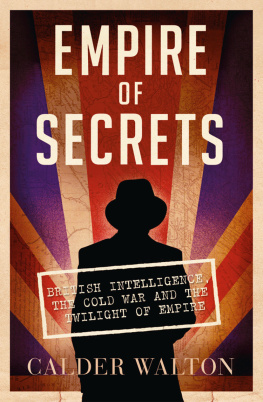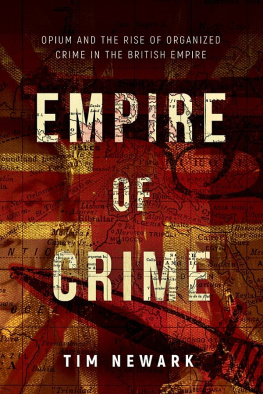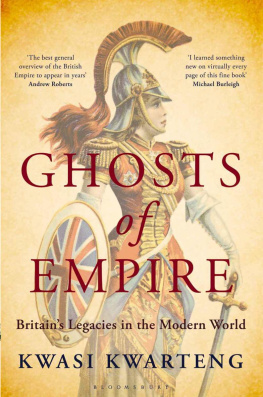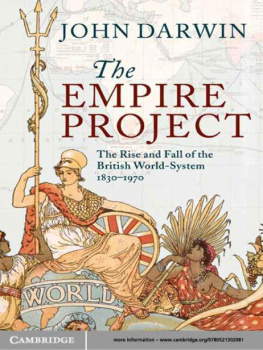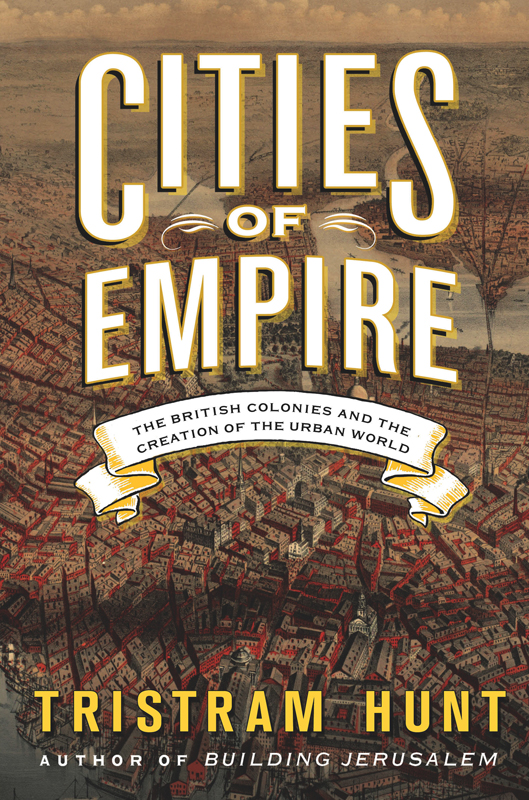Contents
Guide

The author and publisher have provided this e-book to you for your personal use only. You may not make this e-book publicly available in any way. Copyright infringement is against the law. If you believe the copy of this e-book you are reading infringes on the authors copyright, please notify the publisher at: us.macmillanusa.com/piracy.
To M.D.E.H.
INSERTS
TEXT ILLUSTRATIONS
For their generous assistance with the research, writing and production of this book, the author would like to thank James Baker, Chris Bayly, Sara Bershtel, Paul Bew, Vivian Bickford, Chloe Campbell, Georgina Capel, Michael V. Carlisle, James Cronin, Thi Dinh, Richard Duguid, Donald Futers, Carrie Gibson, Julia Hobsbawm, Riva Hocherman, Julian and Marylla Hunt, Jennifer Huntington, Shruti Kapila, Peter Kilfoyle, Alan Lockey, Cecilia Mackay, Carrie Martin, Rana Mitter, Ruaridh Nicoll, Michael Parkinson, Stuart Proffitt, Gaye Blake Roberts, Hannah ORourke, Miri Rubin and the Department of History, Queen Mary, University of London, Claire Sandars, Ben Shephard, Owen Stanwood, Rory Stewart, Phil Tinline, Juliet Thornback, Imogen Walford, Ian Wason, David Watson, Alison Wedgwood, Benjamin Wegg-Prosser, Jon Wilson.
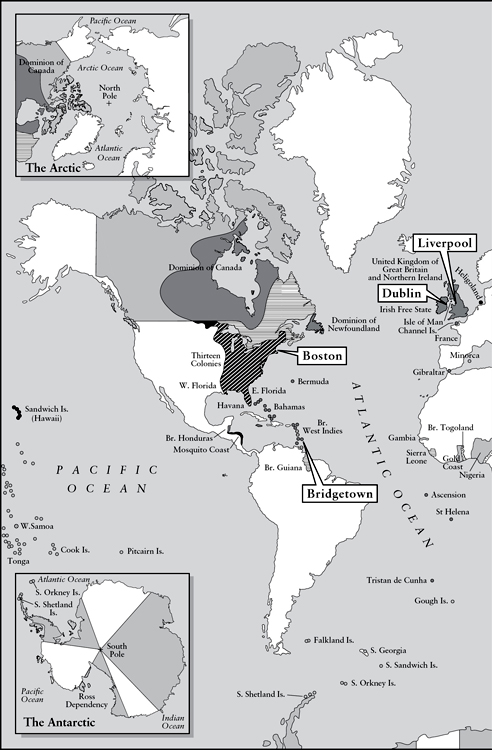
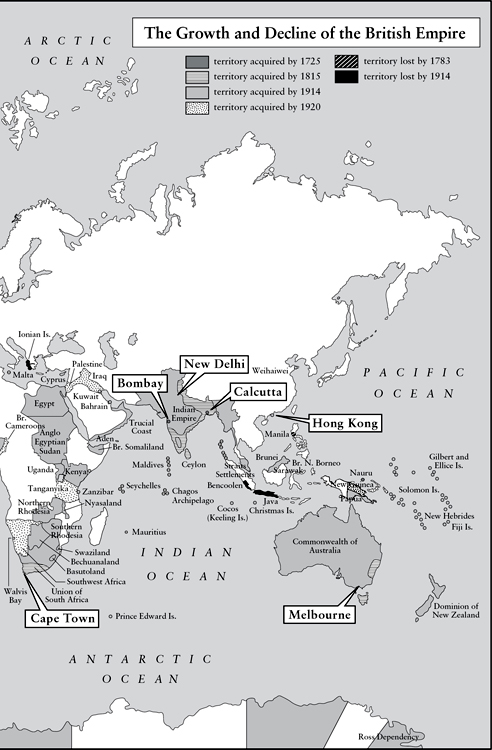
Contents
On a sharp winters day in December 2010, the Hong Kong Association and Society held its annual luncheon in Londons Hyde Park. The venue, of course, was the Mandarin Oriental Hotel, part of the Jardine Matheson group, perched lucratively amidst the billionaires playground of Knightsbridge, and all the great tai-pans of British corporate life were in attendance. However, the Associations guest of honour was not some old China hand, flown in from the Hong Kong Club, to wax lyrical about Britains easternmost possession. Instead, it was the tall, suave and studiously loyal ambassador of the Peoples Republic of China, His Excellency Mr Liu Xiaoming.
In syrupy diplomatese, Beijings man in London spoke rhapsodically of the Pearl of the Orient and the achievements of British business in building up the colony, and then reaffirmed his governments commitment to the vision of Hong Kong proclaimed by Deng Xiaoping: one country, two systems. Communist China would not impose Mao Zedong thought on Hong Kong. Instead, it was determined to preserve freedom of speech, the rule of law, private property rights and, above all, the low-tax, free-trade model that underpinned the once-imperial citys prosperity. The future of this international city was as a global finance centre and, for British companies, as a bridge to mainland China. A pleasing statement of business as usual, the message was smartly tailored to the merchant princes of the Mandarin Oriental.
Thirteen years earlier, when Britains ninety-nine-year lease on Hong Kong came to an end, there was little evidence of such Sino-British harmony. Then, it was all tears and angst, pride and regret. At the stroke of midnight the Union Jack was lowered to the strains of God Save the Queen, the Hong Kong police ripped the royal insignia from their uniforms, and Red Army troops poured over the border. Britains last governor, Chris Patten, recorded the final, colonial swansong in all its lachrymose glory: its kilted pipers and massed bands, drenching rain, cheering crowds, a banquet for the mighty and the not so mighty, a goose-stepping Chinese honour guard, a president and a prince. Steaming out of Victoria Harbour, as the Royal Marines played Rule, Britannia! and Land of Hope and Glory, on the last, symbolic voyage of the Royal Yacht Britannia , we were leaving one of the greatest cities in the world, a Chinese city that was now part of China, a colony now returned to its mighty motherland in rather different shape to that in which it had become Britains responsibility a century and a half before.
In London, responses to the handover ran the gamut, from anguished to humbled, emblematic, in a way, of the conflicted reexamination of Britains colonial legacy that has been underway for some years. At the shrill end of the spectrum: The handover of Hong Kong to China strikes many westerners as a disgrace and a tragedy, thundered The Economist . Never before has Britain passed a colony directly to a Communist regime that does not even pretend to respect conventional democratic values.
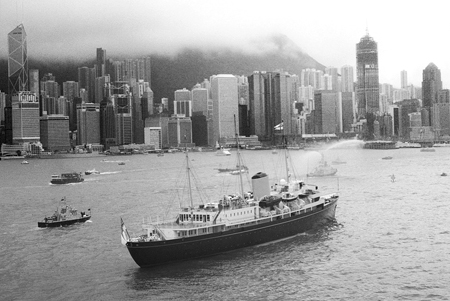
The end of the line. Her Majestys Ship the Royal Yacht Britannia sails at Hong Kong harbour, 23 June 1997. The ship, which became the floating base for Prince Charles, arrived a week before the territory was to be handed back to China after more than 150 years of British rule (1997).
Other brave commentators suggested there might be a more complex pre-history to this handover. Author Martin Jacques thought the ceremony showed, no sense of contrition, of humility, of history. This was British hypocrisy at its most rampant and sentimental.
In his memoirs, Prime Minister Tony Blair admits to a startling failure to appreciate the historic significance of the return of Hong Kong to China, as a rising, newly prosperous country sought to take its place in the world and shed the memory of its century of humiliation at the hands of British, French and American forces. After President Jiang Zemin teased the jet-lagged and jejune British premier about his poor knowledge of William Shakespeare
he then explained to me that this was a new start in UK/China relations and from now on, the past could be put behind us. I had, at that time, only a fairly dim and sketchy understanding of what the past was. I thought it was all just politeness in any case. But actually, he meant it. They meant it.
However, one member of the British delegation remained determined to cling on to the past. In a confidential diary entry entitled The Great Chinese Takeaway, His Royal Highness the Prince of Wales laid bare his despair at seeing the Crown colony returned to the mainland. Watching another piece fall from his family inheritance, the prince lamented the ridiculous rigmarole of meeting the old waxwork Jiang Zemin, and the horror of watching an awful Soviet-style ceremony in which Chinese soldiers goose-step on to the stage and haul down the Union Jack. Charles Philip Arthur George Mountbatten-Windsor knew all too well that, when his time came to assume the throne, the loss of Hong Kong meant Britains imperial role would be long past. Such is the end of Empire, I sighed to myself.
* * *
As Great Britains formal empire finally receded into the distance, the public debate about the legacies and meaning of that colonial past has grown only more agonized.
As critics pointed out, there were numerous problems with Fergusons version of empire: its Whiggish focus on the heroic age of Victorian achievement to the exclusion of the more amoral adventurism of the eighteenth century or bloody counter-insurgencies of the twentieth century; its unwillingness to chart the broader impact of colonialism on indigenous peoples; its concentration on the free-trade period of British imperialism as the Empires defining ethos; and its dichotomous, good versus bad balance-sheet approach to the past.


